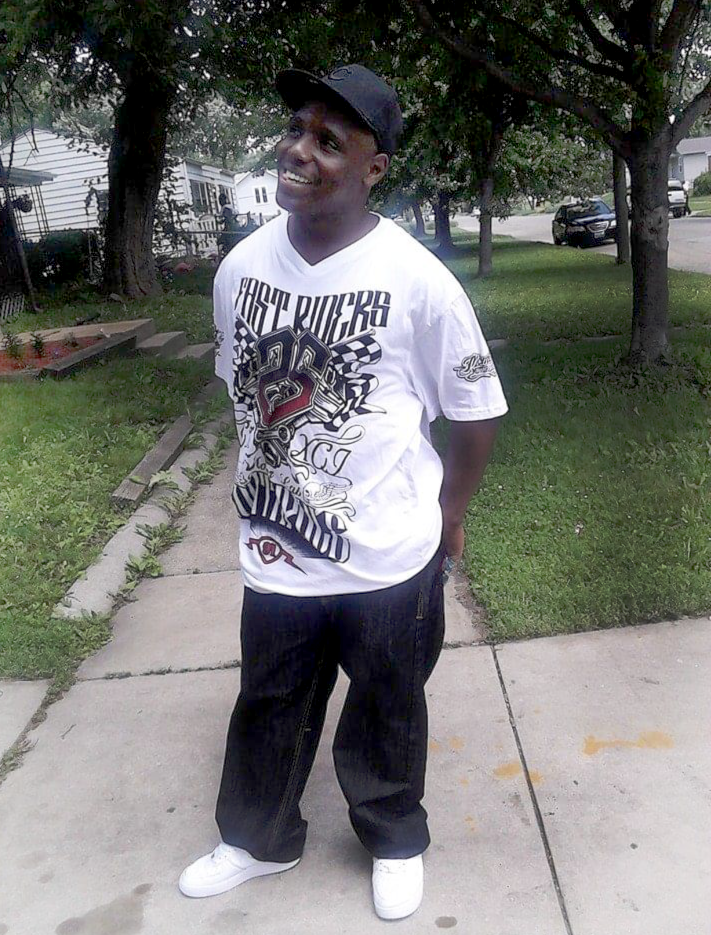Bill allowing punitive damages in wrongful death suits advances House
In the recent death of Earl L. Moore, Jr., a 35-year-old Springfield man who died following an altercation with two emergency medical services workers, the family could not seek punitive damages in its wrongful death lawsuit.
As previously reported by The State Journal-Register, no specific requested amount has been announced by the family in their suit filed against two EMS workers - Peter J. Cadigan, 50, and Peggy J. Finley, 44, and LifeStar Ambulance Services, Inc. The family is seeking compensatory damages to make up for financial losses after Moore's death, not punitive damages which seek to punish bad actors, since it is not permitted by state law currently.
More: Attorneys seek new bond for EMT accused in Moore death and family's lawyer remarks removed
Under a bill advancing in the Illinois General Assembly that could change.
House Bill 219 passed in the House on Tuesday 75-40 and now heads to the Senate and would grant the decedent's heirs the right to pursue these damages. The shell bill moved quickly through committee earlier that day after amendments were introduced on Friday.
Rep. Jay Hoffman, D-Swansea, said his bill would give heirs the same right as families of an injured person, who can presently seek punitive damages. Suits against government officials, state and local, would still be exempt from damages if the legislation passes.
"This type of legislation is in 34 other states," he said during floor debate. "I believe it's a victims' rights legislation and I believe it's important that punitive damages for bad actors be available in wrongful death cases."

Hoffman further explained the burden of proof for punitive damages to be awarded include showing the specific action or actions that led to an individual's wrongful death and whether there was any attempt of a cover-up.
Republicans voted against the legislation with concerns that it could lead to business disinvestment and further economic hinderance in the state. Other groups opposed include the Illinois Insurance Association, Illinois Chamber of Commerce, the Illinois Manufacturers Association and the Illinois Retail Merchants Association.
Their primary objection and one Rep. Dan Ugaste, R-Geneva noted on the House floor is the bill makes no limit as to how much these damages could be. The reason for this is the Illinois Supreme Court has ruled caps on damages to be unconstitutional, Hoffman countered, while also citing only 18 cases in the past decade where compensatory damages awarded exceeding $10,000.
While a cap does not exist in Illinois, the U.S. Supreme Court found in a 2003 ruling that punitive damages exceeding ten times the amount of compensatory damages would be in most cases in violation of due process. Ugaste asked the legislature to not move forward with the legislation over the remaining days of session.
"We could end up shutting down a business because one or two bad actors and I'm not defending the bad actors at all," he said. "I'm just saying there are other people to consider here."
House Minority Leader Tony McCombie was also opposed to the exemptions, saying that all bad actors including those in government should face punitive damages if the bill is signed into law. She and all members of the minority party voted against HB 219.
Rep. Martin McLaughlin, R-Barrington Hills, noted the proponents of the bill were primarily lawyers - the Illinois State Bar Association and Illinois Trial Lawyers Association namely.
"I think it's pretty evident that what we got here is a bunch of trial lawyers looking to pass legislation to fill their pockets against businesses in Illinois," he said.
Another opponent to the bill is Johnson and Johnson, who recently announced it would be paying $8.9 billion to thousands of individuals who claim the pharmaceutical company's talcum powder gave them ovarian cancer as reported by The New York Times. Their opposition was not unexpected by Hoffman.
"What surprises me is that we can't be honest with ourselves and say if they are conducting these types of behaviors that their behavior has to stop," he said.
Whether further voting action is taken before the scheduled adjournment on Friday is unknown at this point. Attempts in prior general assemblies, most recently legislation from Rep. La Shawn K. Ford, D-Chicago, last year, have failed to make it to a vote or through a committee.
Contact Patrick Keck: 312-549-9340, pkeck@gannett.com, twitter.com/@pkeckreporter.
This article originally appeared on State Journal-Register: Bill allowing punitive damages in wrongful death suits advances House

